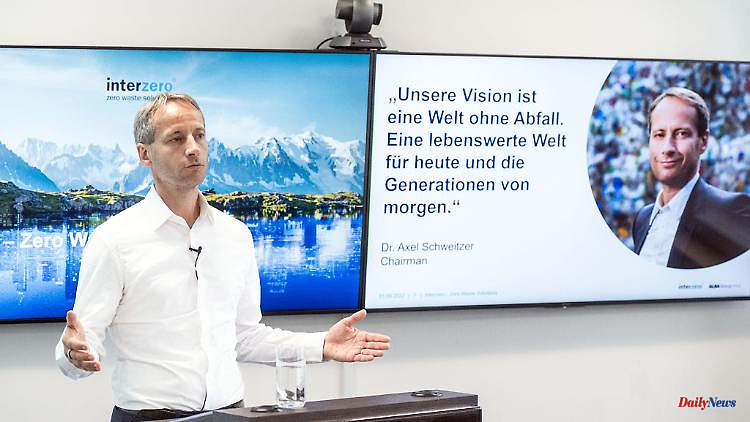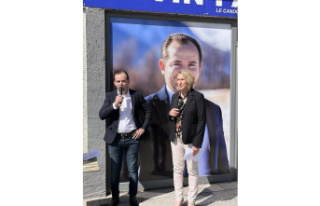A world without garbage that is burned to generate energy? According to one waste manager, this will eventually be feasible - provided consumers get involved and industry brings products to market that are easy to recycle.
Marl/Cologne (dpa/lnw) - In North Rhine-Westphalia's waste industry, another company with billions in sales is appearing on the scene. The manager Axel Schweitzer presented the company Interzero in Marl on Monday, which specializes in the sorting and processing of plastic waste. Advice on waste prevention is also offered.
The background to the founding of the company is the division of the Berlin waste group Alba: Axel Schweitzer gets one half and his brother Eric the other half, in which, among other things, the waste disposal business as well as the paper and organic waste business remain. Eric's part is still called Alba, while Axel's is called Interzero.
According to the information, the Alba parts of the company, which were transferred to Interzero, recently had an annual turnover of around one billion euros with around 2000 employees. The company is based in Berlin, but most of the administration is in Cologne. With a plastic sorting plant in Marl, where the manager presented his new company on Monday, there is another important Interzero location in NRW.
The state is already home to other larger waste companies. The industry leader Remondis comes from Lünen and the "Green Dot" brand owner DSD from Cologne. The company Prezero, which belongs to Lidl mother Schwarz, has its roots in Porta Westfalica. As a joint company, Alba has so far been one of the industry giants in Germany, but after the split, the two companies are losing ground in the ranking.
The Schweitzer brothers announced last year that they would divide the group among themselves. The separation is now legally close to completion. Axel Schweitzer said on Monday that the two brothers would remain owners of the business for which they were previously responsible anyway. As separate companies with different business areas, they are "agile".
There is already an Alba subsidiary called Interseroh, which is responsible, among other things, for the licensing of packaging waste and is based in Cologne. This part of the company will be transferred to Interzero. The last two syllables of Interseroh's name were an abbreviation for "secondary raw materials". The new company name Interzero, on the other hand, refers to the goal of a world without waste that is incinerated ("zero waste"). Axel Schweitzer emphasized on Monday that this is possible. "When I spoke about a world without waste 15 years ago, I was laughed at." That has changed, there is a social change taking place.
This change is also necessary because: "We still burn far too much waste." As a result, raw materials are lost and the CO2 pollution is high. The circular economy must be strengthened - that is, that parts of discarded products are reused for new products instead of being burned to generate energy.
In the Marler sorting plant, the waste is separated into different types of plastic and further processing in other plants is made possible - there the waste is melted into granules so that it can later be used in new products, such as bags.
The system impressively shows how a seemingly inseparable mass of plastic waste that is delivered, after complex separation processes, ultimately creates different mountains of waste that are intended to enable sorted processing.
However, even this state-of-the-art plant has its limits: around 40 percent of the masses delivered are later incinerated. This is due, for example, to composite materials in which different substances are so strongly interwoven that they are unsuitable for recycling. From the point of view of the waste industry, such composite materials should be used less in order to facilitate recycling - this appeal is addressed to the industry.












